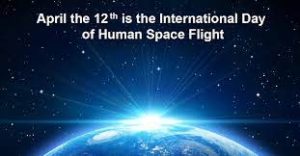On 4 October 1957 the first human-made Earth satellite Sputnik I was launched into outer space, thus opening the way for space exploration. On 12 April 1961, Yuri Gagarin became the first human to orbit the Earth, opening a new chapter of human endeavour in outer space.
The Declaration further recalls “the amazing history of human presence in outer space and the remarkable achievements since the first human spaceflight, in particular Valentina Tereshkova becoming the first woman to orbit the Earth on 16 June 1963, Neil Armstrong becoming the first human to set foot upon the surface of the Moon on 20 July 1969, and the docking of the Apollo and Soyuz spacecrafts on 17 July 1975, being the first international human mission in space, and recall that for the past decade humanity has maintained a multinational permanent human presence in outer space aboard the International Space Station.”
UN and Space
From the very beginning of the Space Age, the United Nations recognized that outer space added a new dimension to humanity’s existence. The United Nations family strives continuously to utilize the unique benefits of outer space for the betterment of all humankind.
Recognizing the common interest of humankind in outer space and seeking to answer
questions on how outer space can help benefit the people’s of Earth, the General
Asssembly adopted its first resolution related to outer space, resolution 1348 (XIII) entitled “Question of the Peaceful Use of Outer Space”.
On 10 October 1967, the “Magna Carta of Space”, also known as the Treaty on Principles Governing the Activities of States in the Exploration and Use of Outer Space, including the Moon and Other Celestial Bodies entered into force.
Today, the United Nations Office for Outer Space Affairs (UNOOSA) is the United Nations office responsible for promoting international cooperation in the peaceful uses of outer space. UNOOSA serves as the secretariat for the General Assembly’s only committee dealing exclusively with international cooperation in the peaceful uses of outer space:
The United Nations Committee on the Peaceful Uses of Outer Space(COPUOS).
UNOOSA is also responsible for implementing the Secretary-General’s responsibilities
under international space law and maintaining the United Nations Register of Objects
Launched into Outer Space.
















